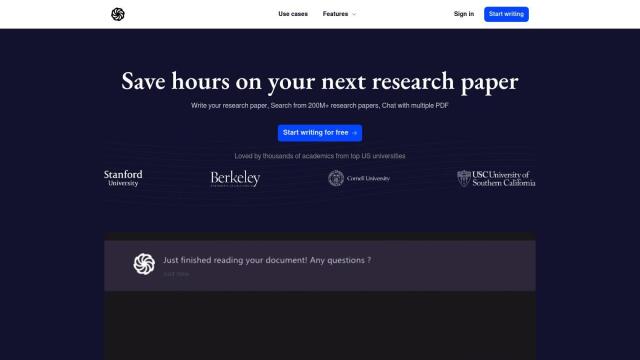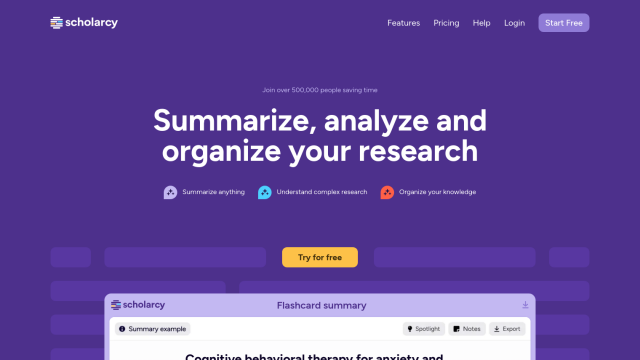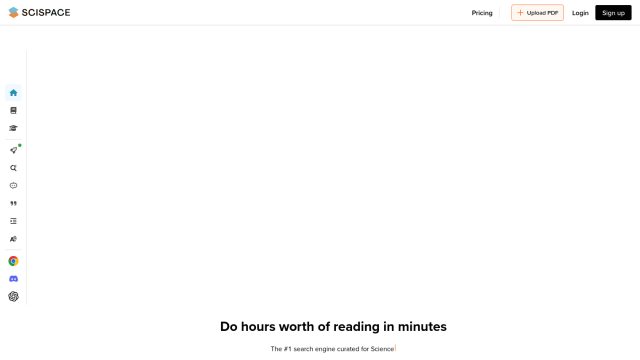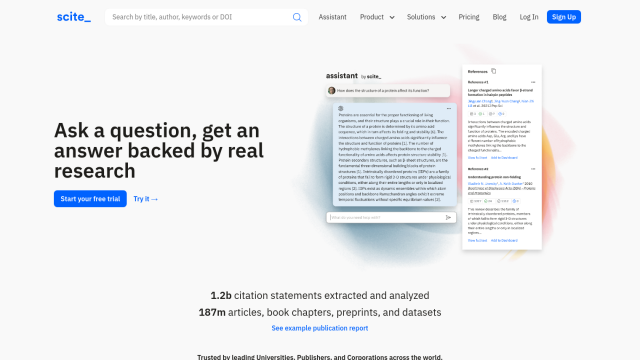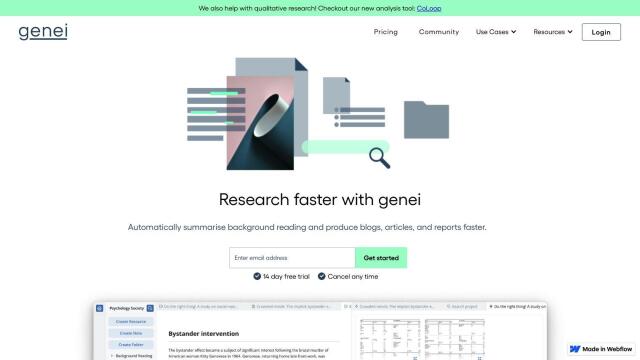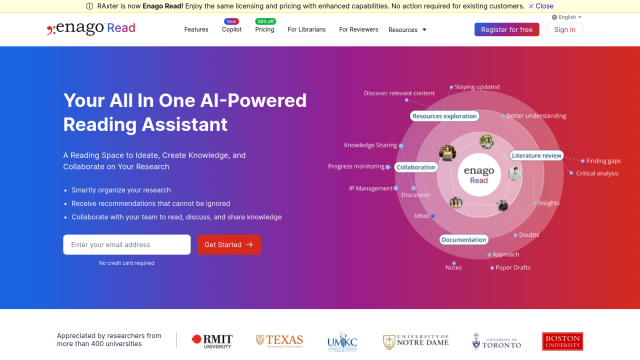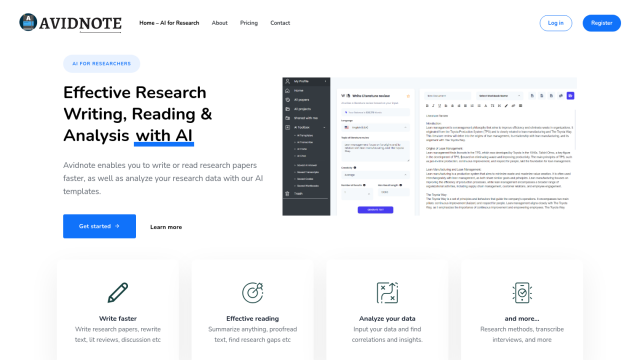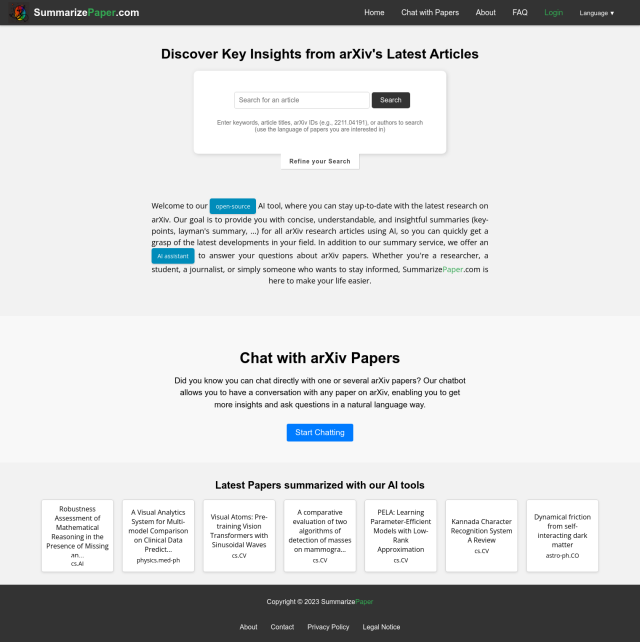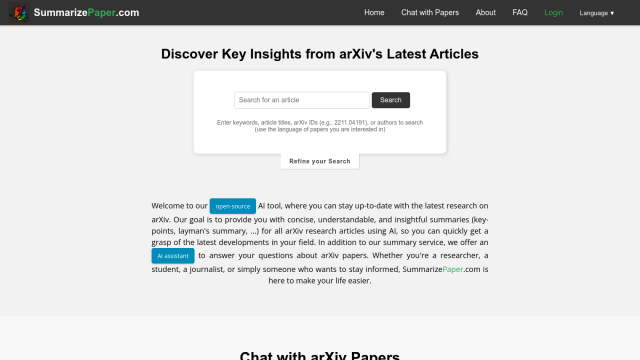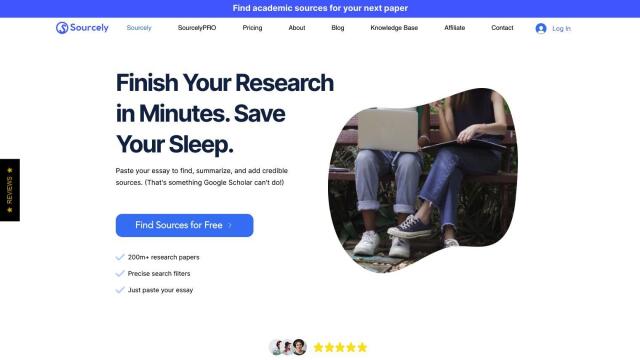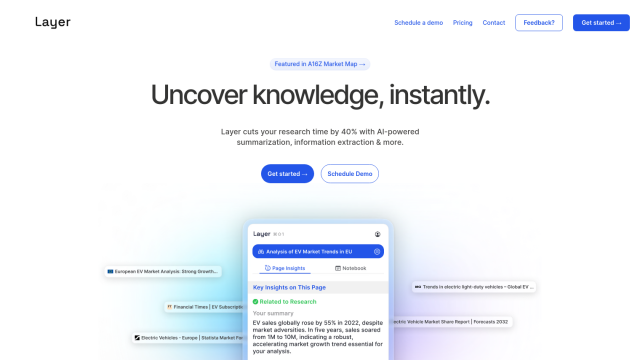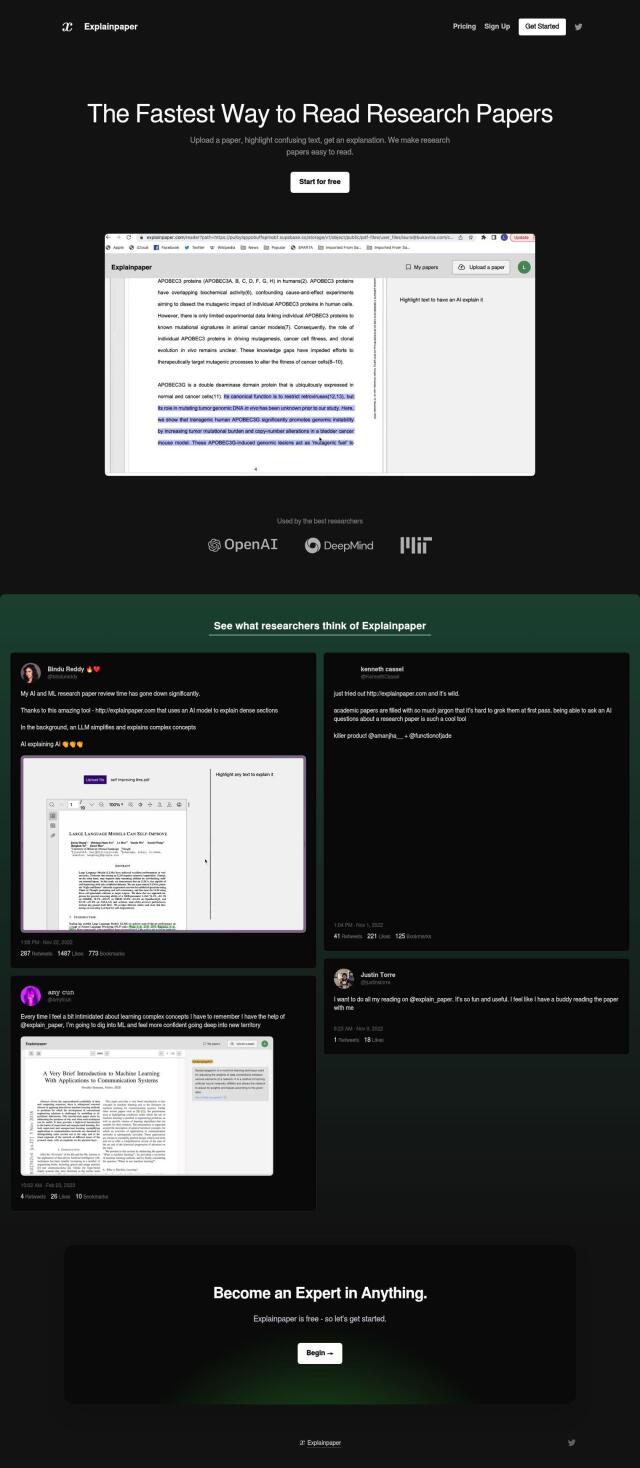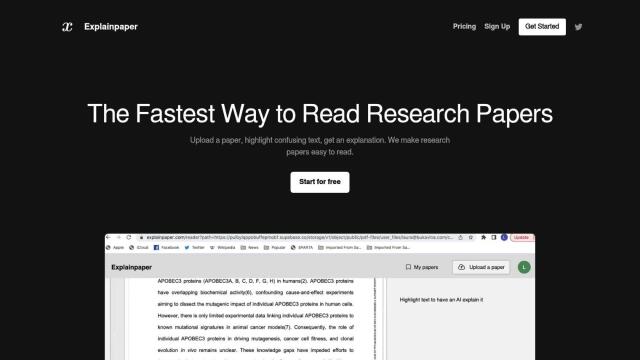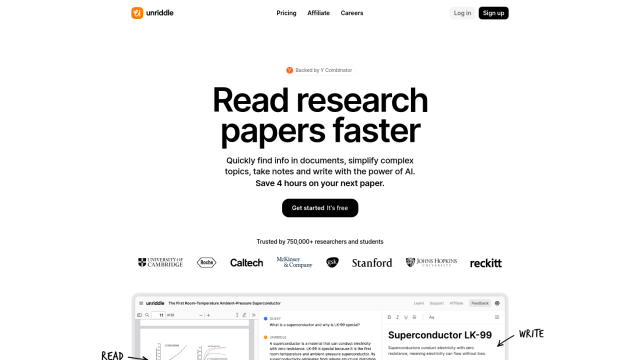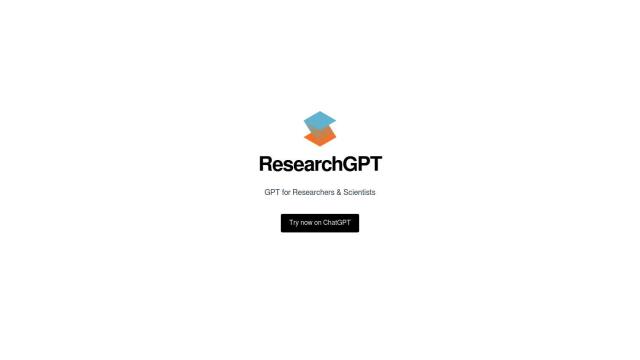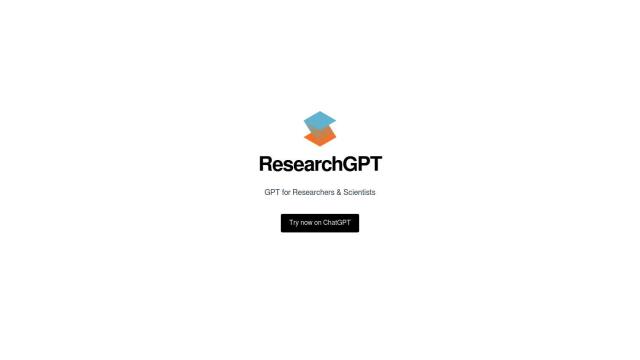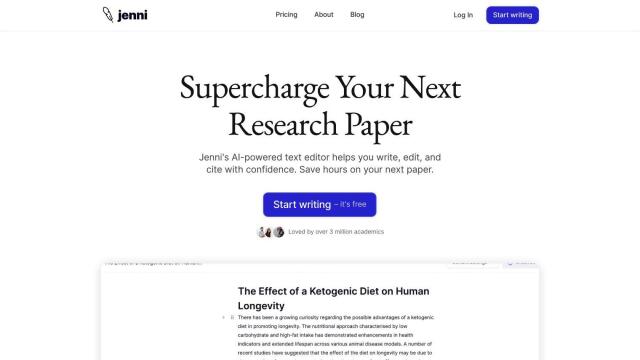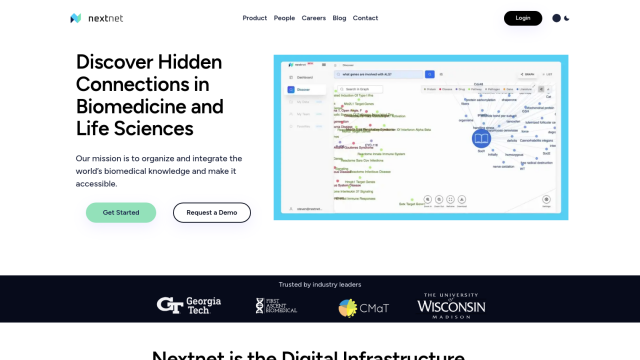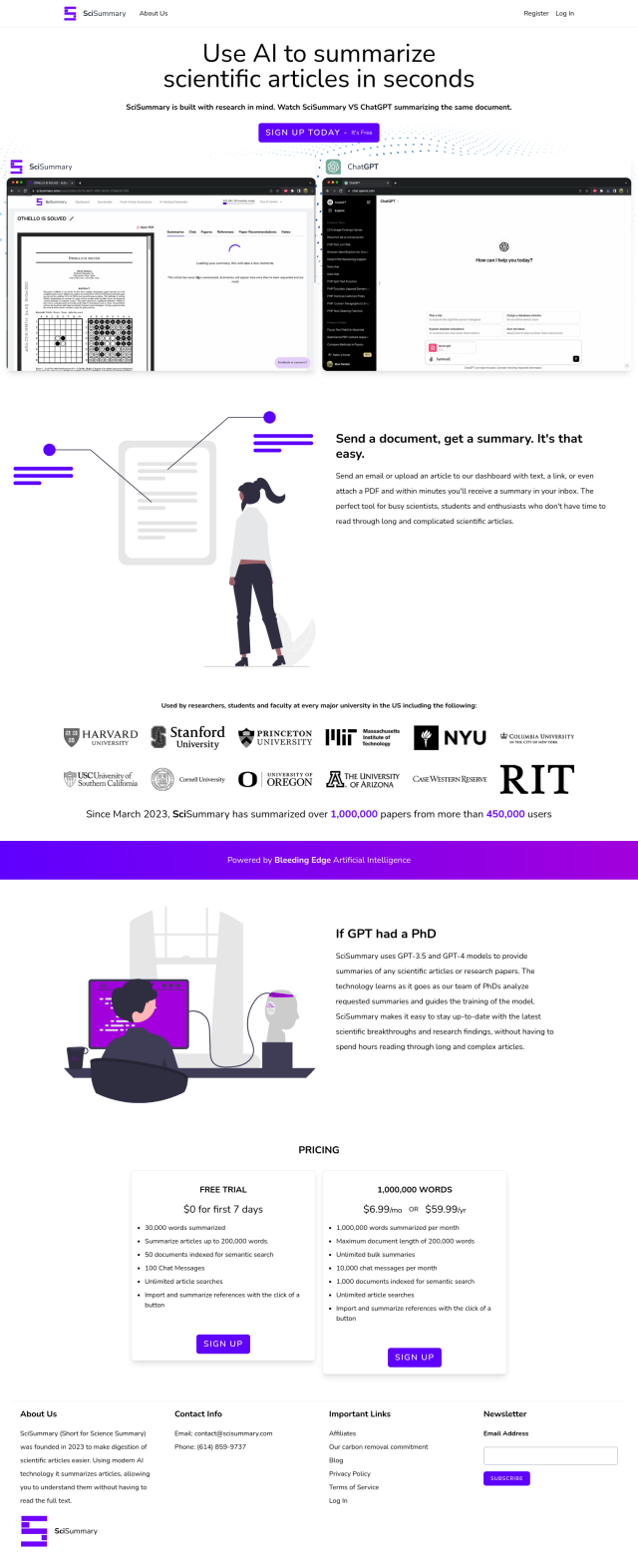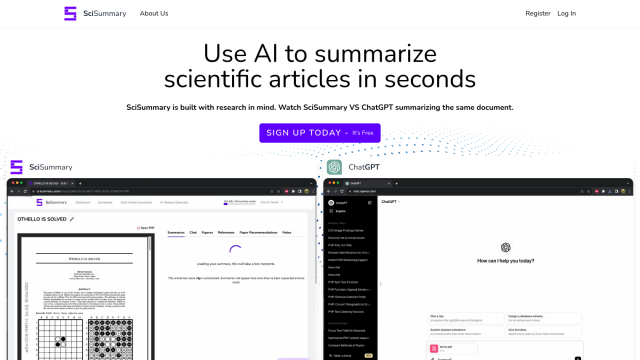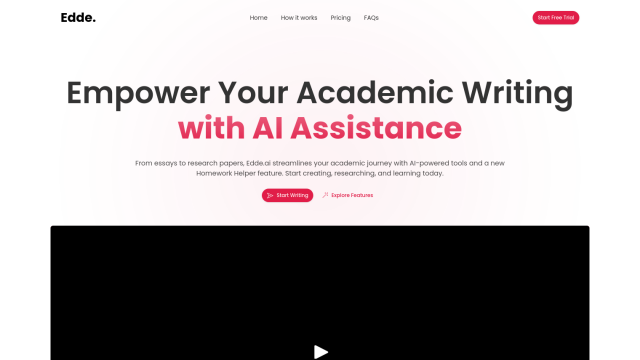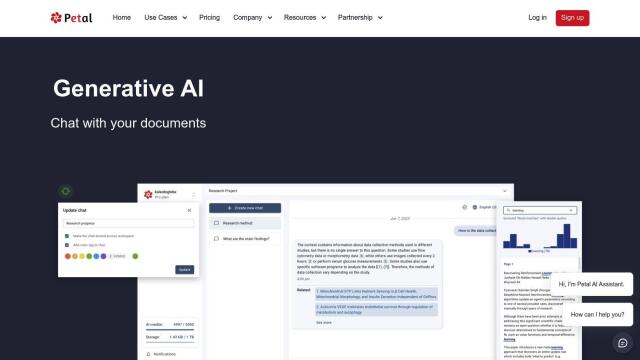Question: I'm looking for a research tool that can help me find the latest academic papers and web sources on a specific topic.
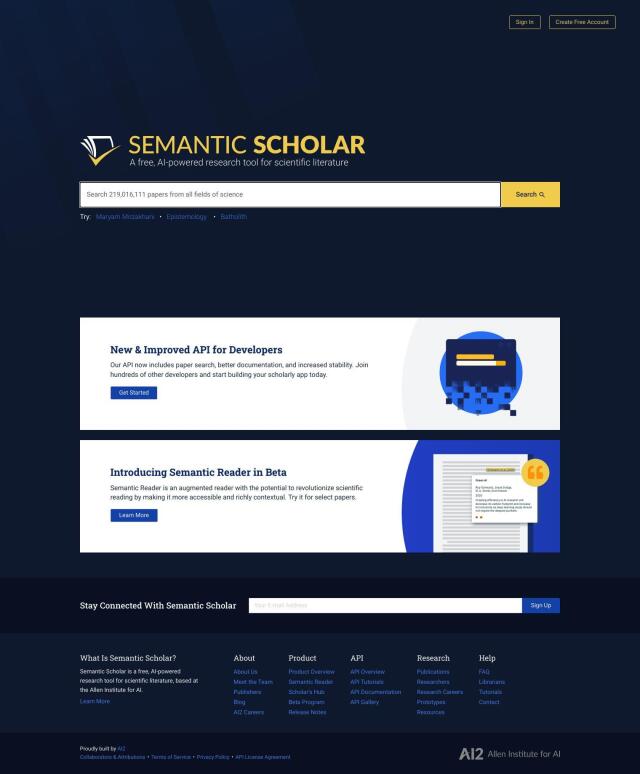
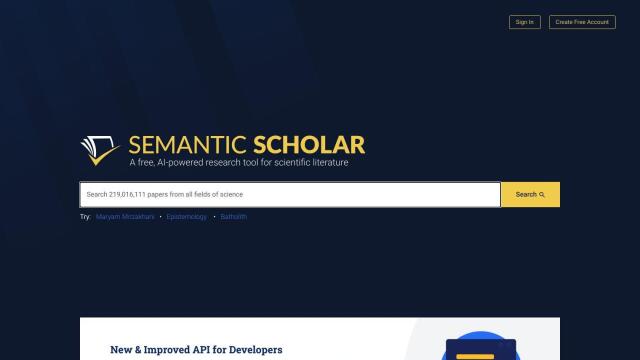
Semantic Scholar
If you want a serious research tool, Semantic Scholar is a great option. It indexes more than 219 million papers across all scientific fields, with powerful filters and abstracts to help you evaluate papers. It also offers tools for citing papers, organizing your research, creating feeds and setting up email alerts. It's free and constantly expanding with new features to make it more useful.

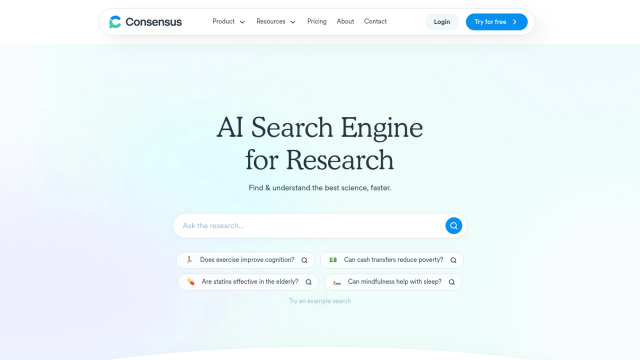
Consensus
Another good option is Consensus, an AI-powered academic search engine that covers a lot of research ground with AI analysis, proprietary search technology and a lot of filtering options. Consensus can help you cut down on literature reviews and get a quick validation of research, which is useful for students, researchers and pros. It's available in several pricing tiers, including a free version.

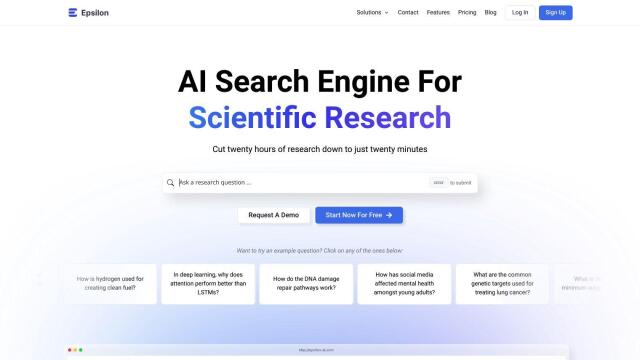
Epsilon
Epsilon is another option. It can speed up scientific discovery by finding relevant citations, summarizing papers and synthesizing results. Its Investigate, Search, Validate and Synthesize features make it useful for researchers. Pricing ranges from free to professional, and more than 30,000 researchers use it.

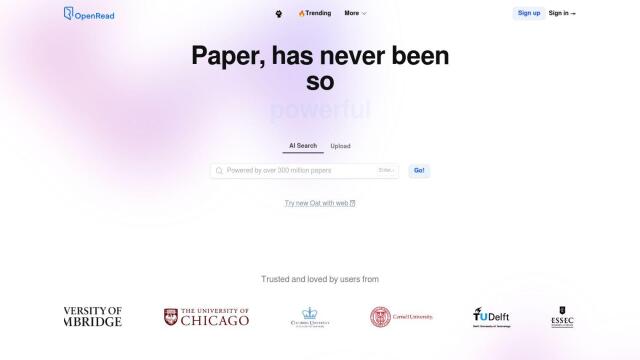
OpenRead
If you want a more powerful search engine, OpenRead indexes more than 300 million papers and indexes them in real time from more than 20,000 journals. It's got tools like Paper Espresso to summarize papers, Paper Q&A to ask questions and a Related Paper Graph to see how papers are connected. OpenRead is designed to help you work more efficiently and be more innovative in your research, and it's available in several pricing tiers.



